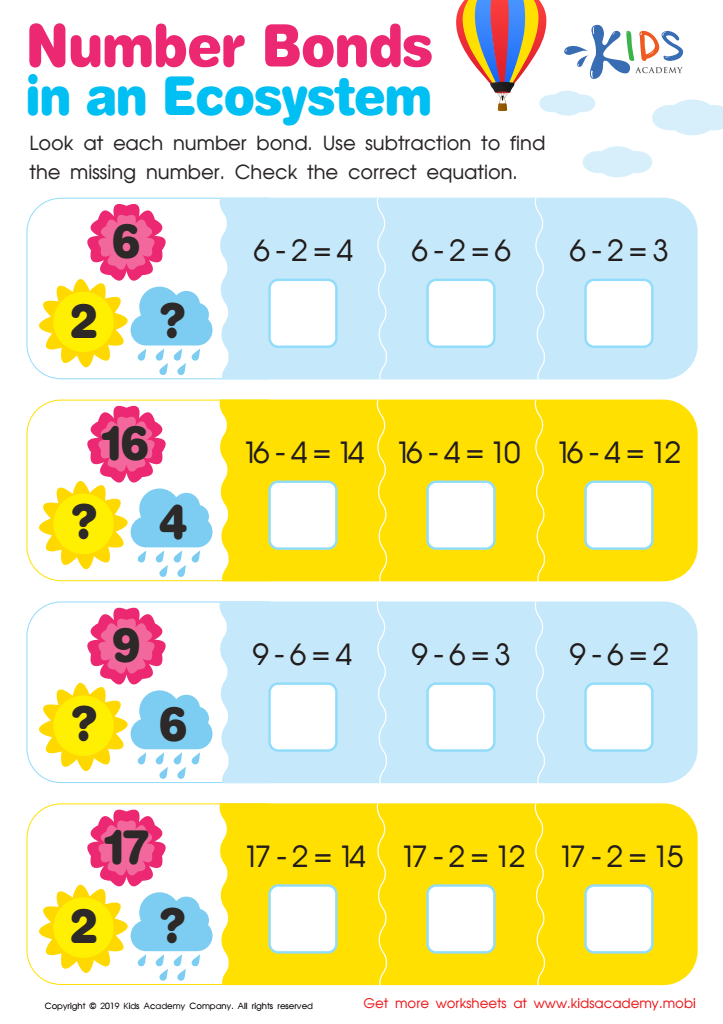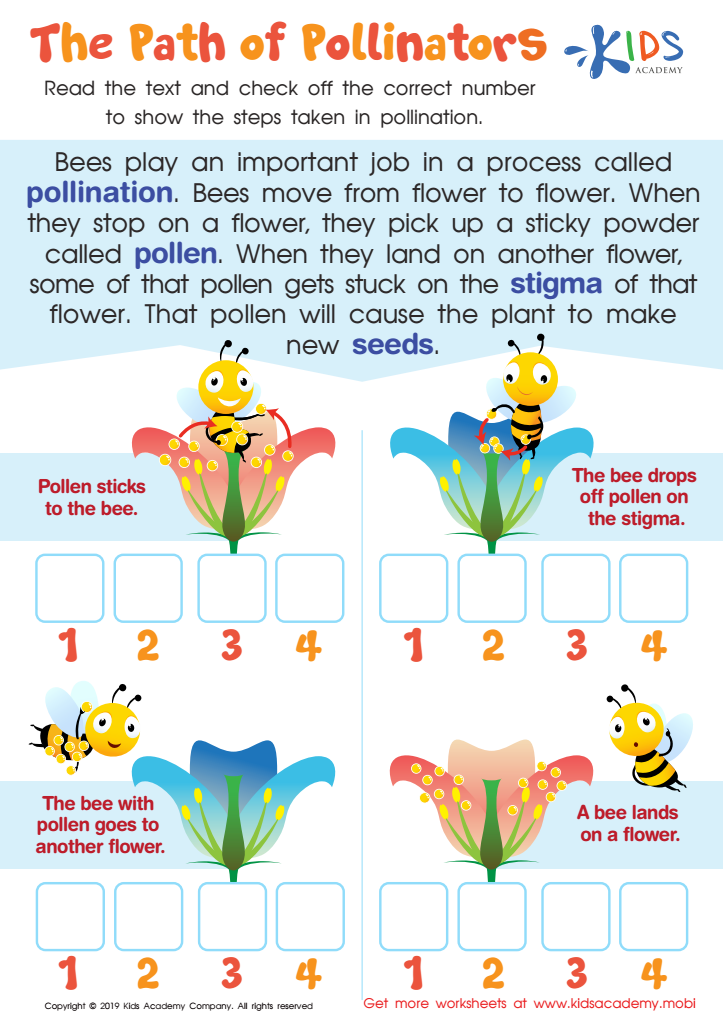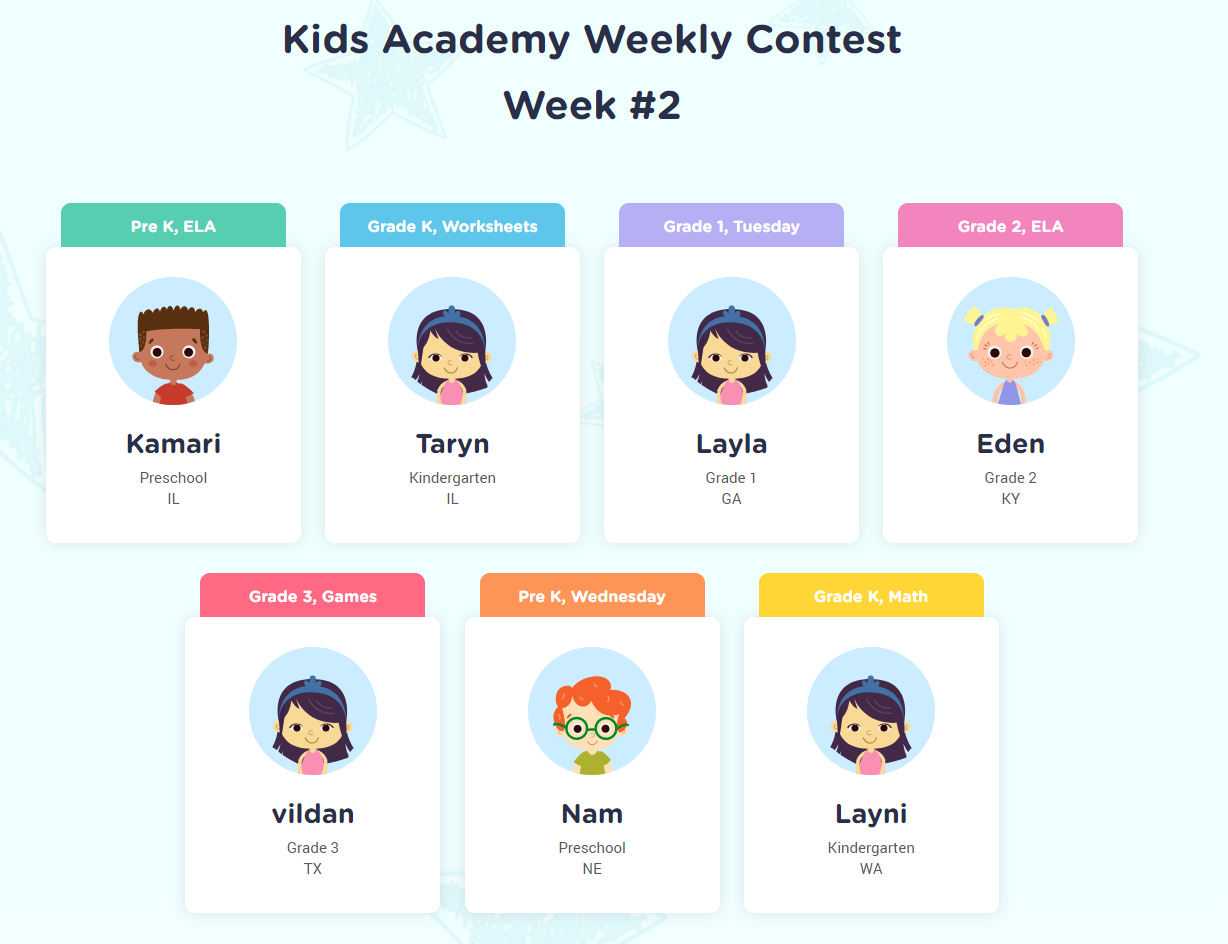Learning about ecosystems Worksheets for Ages 4-7
3 filtered results
-
From - To
Explore the wonders of the natural world with our "Learning about Ecosystems Worksheets" designed for kids ages 4-7. These engaging, interactive worksheets introduce young learners to diverse ecosystems, from lush forests to vibrant oceans. Through fun activities and colorful visuals, children will discover the unique plants and animals that inhabit various environments. Each worksheet promotes critical thinking, creativity, and a foundational understanding of ecology, making learning enjoyable. Perfect for both classroom settings and at-home learning, these resources help nurture a love for nature while developing essential skills in observation and reasoning. Dive in and inspire the next generation of environmental stewards!


Pollinator Positions Worksheet


Number Bonds in an Ecosystem Worksheet


The Path of Pollinators Worksheet
Parents and teachers should prioritize learning about ecosystems for children aged 4-7 because it lays a foundational understanding of the natural world that shapes their future relationship with the environment. At this developmental stage, children are naturally curious and receptive to learning about the living organisms and their interconnectedness within ecosystems. Introducing these concepts fosters a sense of wonder and awareness, encouraging empathy for animals, plants, and their habitats.
Understanding ecosystems also supports critical thinking and problem-solving skills. As children explore food chains, habitats, and the impact of pollution, they begin to grasp complex ideas in a simple context, laying groundwork for STEM subjects in later years. Moreover, learning about ecosystems inspires young learners to take responsibility for their surroundings, promoting sustainable behaviors and civic duty even at a young age.
Additionally, discussions about ecosystems enable meaningful conversations about global topics like climate change, biodiversity, and conservation. This early education empowers children to become informed citizens who are aware of the environment's challenges and motivated to make positive changes in their communities. By nurturing knowledge about ecosystems, we cultivate the next generation of innovators who will protect our planet for years to come.
 Assign to My Students
Assign to My Students















